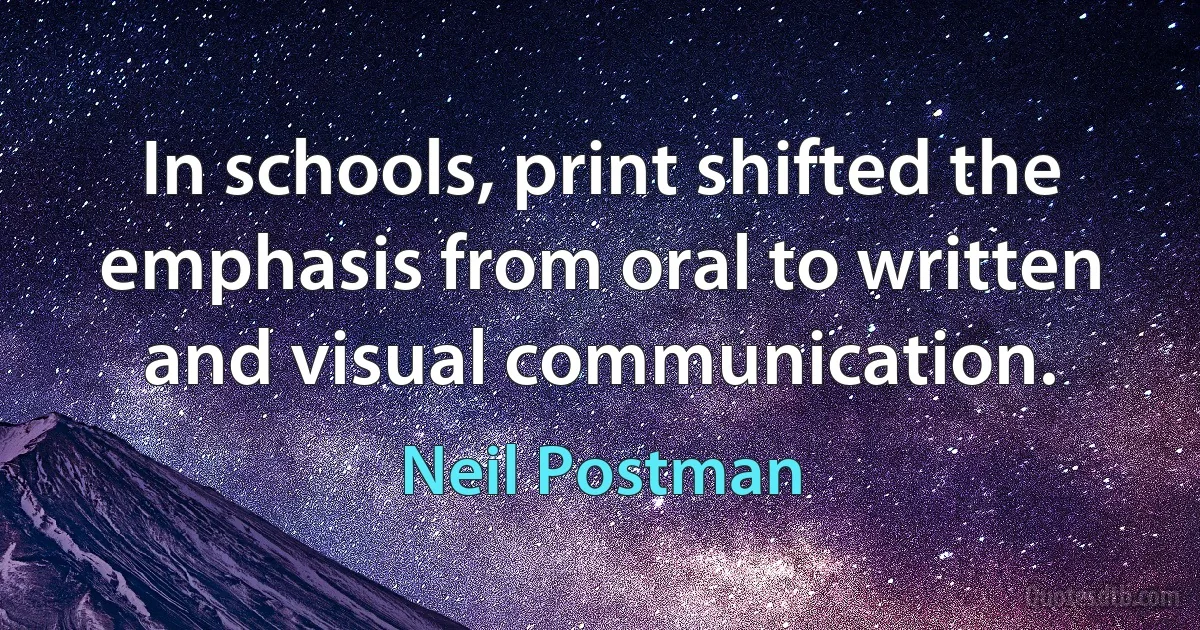Oral Quotes - page 4
I chose to rewrite it in poetry because the original Ramayana was in poetry- the fact is, it's sort of been corrupted into prose. In its original form it was an epic poem rather like the Iliad or works of that sort. Rather than traditional poetry, it was a verse novel, without a traditional structure. What I most wanted to do was to preserve the essential musicality of the lines. Especially as the Ramayana like so many stories, was based on a fundamentally oral tradition.

Daljit Nagra
The second observation is that poetry is a universal human art. Despite post-modern theories of cultural relativism that assert there are no human universals, there exists a massive and compelling body of empirical data, collected and documented by anthropologists, linguists, and archeologists that demonstrates there is no human society, however isolated, that has not developed and employed poetry as a cultural practice. Most of this poetry, of course, has been oral poetry. Many of these cultures never developed writing. But the fact remains-and it is a demonstrable fact, not mere opinion-that every society has developed a special class of speech, shaped by apprehensible patterns of sound, namely, poetry.

Dana Gioia
The first principle, when you don't know anything about the subject of a thesis, is to let the candidate talk, nodding now and then with an ambiguous smile. He thinks you know, and are counting his mistakes, and it unnerves him... the second principle of conducting an oral, ... is to pretend ignorance, and ask for explanations of very simple points. Of course your ignorance is real, but the examinee thinks you are being subtle, and that he is making an ass of himself, and this rattles him.

Robertson Davies
Oral tradition is really how Chicano literature came to be. I was not exposed to the written word, but I had the greatest teacher. I always tell people that my mother was my inspiration because she was the best chismosa, and she had the best stories. And if anyone taught me about drama, it was my mother because she knew how to tell a story. And my grandfather also told stories. One of the reasons why I waned to be a writer was because I was fascinated by stories of La Llorona, supernatural stories and things like that and I love hearing chisme (gossip)...

Josefina Lopez
Many similar views were also expressed in the Sanskrit Commission Report written under the Nehru government in the 1950s. That report declares: "The State in ancient India, it must be specially pointed out, freely patronised education establishments, but left them to develop on their own lines, without any interference or control. It says that until the British disruption, the salient features of our traditional education included: 'oral instruction, insistence on moral discipline and character-building, freedom in the matter of the courses of study, absence of extraneous control...' ... We can never insist too strongly on this signal fact that Sanskrit has been the Great Unifying Force of India, and that India with its nearly 400 millions of people is One Country, and not half a dozen or more countries, only because of Sanskrit.'

Rajiv Malhotra
The blues are important primarily because they contain the cultural expression and the cultural response to blacks in America and to the situation that they find themselves in. And contained in the blues is a philosophical system at work. And as part of the oral tradition, this is a way of passing along information.

August Wilson
Truly fine poetry must be read aloud. A good poem does not allow itself to be read in a low voice or silently. If we can read it silently, it is not a valid poem: a poem demands pronunciation. Poetry always remembers that it was an oral art before it was a written art. It remembers that it was first song.

Jorge Luis Borges
Q: What about the case this term involving the strip search, in school, of 13-year-old Savana Red-ding? Justice Souter's majority opinion, finding that the strip search was unconstitutional, is very different from what I expected after oral argument, when some of the men on the court didn't seem to see the seriousness here. Is that an example of a case when having a woman as part of the conversation was important?

Ruth Bader Ginsburg
The beasts were seen as envoys from that other world, and Campbell surmised "a magical, wonderful accord" growing between the hunter and the hunted, as if they were locked in a "mystical, timeless" cycle of death, burial, and resurrection. Their art - the paintings on cave walls - and oral literature gave form to the impulse we now call religion.

Joseph Campbell
Anthropologically, money should be defined as a semantic system, broadly similar to language; writing, or weights and measures. These systems differ mainly in the purposes served and the signs employed. Language and writing serve the purpose of the communication of ideas, weights and measures that of quantitative physical relationship. As to signs, language uses oral sounds; writing employs ideograms or visual characters; weights and measures, on the other hand, use physical objects as the basis of symbols.
Money resembles, but also differs from, each of these. It serves several ends, which are traditionally described as means of payment; standard of value or money of account; store of wealth; and medium of exchange.

Karl Polanyi
To us it does not seem that long ago, possibly because our children hear stories told around the fire of things which happened fifteen centuries back. Such stories carry an immediacy one does not get from books....”
"Which is why some countries carry such old grudges,” offered Marianne. "What children learn at their grandmas' knees they act upon as though it happened yesterday.”
He nodded gravely, even sadly. "Perhaps that is true. Those who have an oral tradition full of old wrongs and old revenge do seem to fight the same battles forever. If the Irish were not forever singing of their ancient wrongs-or writing poetry about it...well, we see the result in every morning's newspapers.

Sheri S. Tepper
...I think that was really important growing up around story tellers like my dad and my uncles. I think it instilled a love of the beauty of the spoken story. Also, my mother was a reading teacher. She brought home a lot of fables and fairy tales, which also have an oral tradition behind them. It was a combination of those things that brought me the desire to tell stories, as opposed to a love of the beauty of writing.

Diana Abu-Jaber



